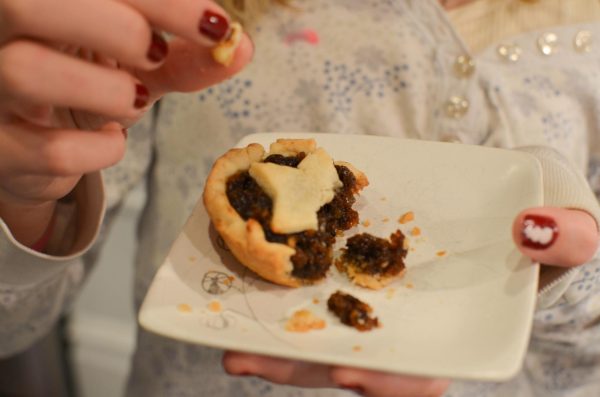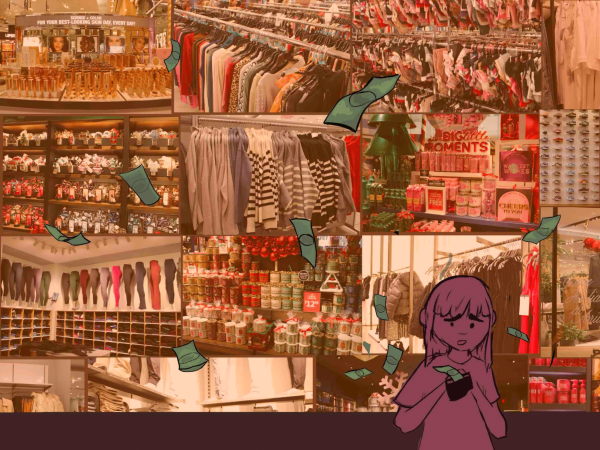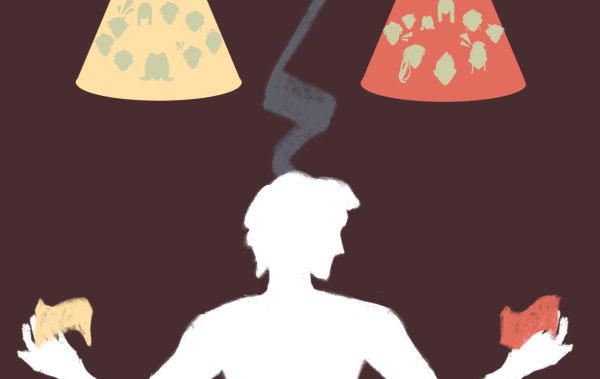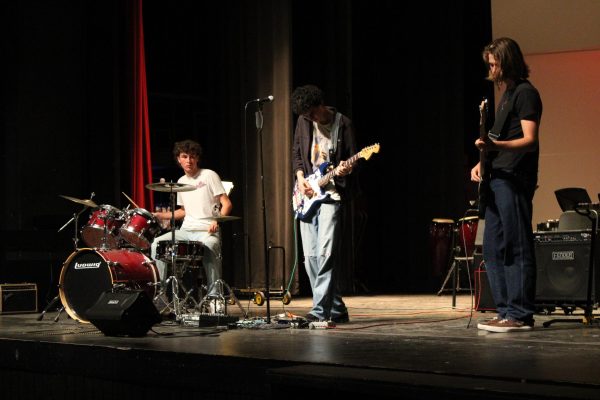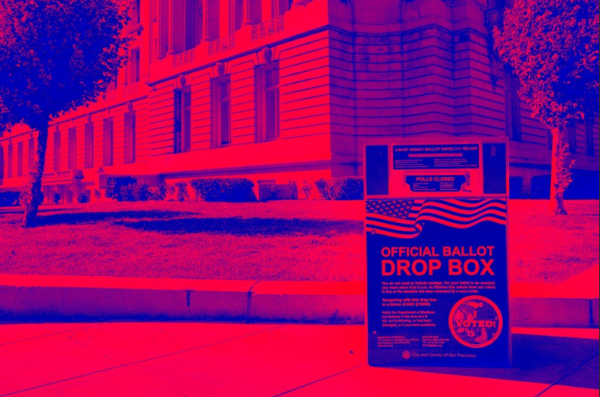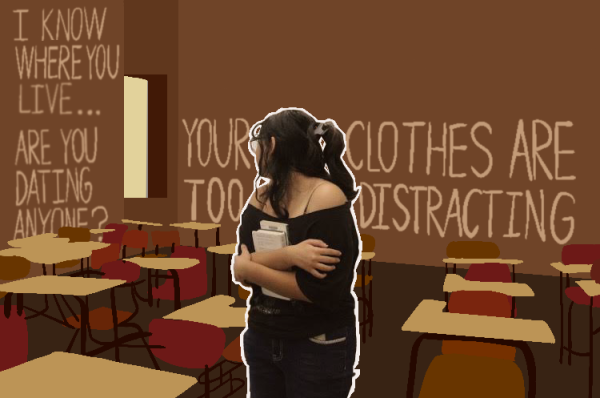New year, new staff: Meet your new teachers, part 3
Anjana Amirapu, biology teacher
By Yolanda Feng
After letting go of her medical school plans, biology teacher Anjana Amirapu set off on her career path of becoming a high school teacher. Along with the positive impact her high school English teachers had on her, her passion for biology brought her to her job at Lowell.
Prior to becoming a Lowell teacher, Amirapu took a gap year with CityYear to work as a math and science tutor. When Amirapu is not preparing material for her classes, she enjoys doing yoga, listening to classical music, going on runs, reading books and visiting the beach down in Half Moon Bay.
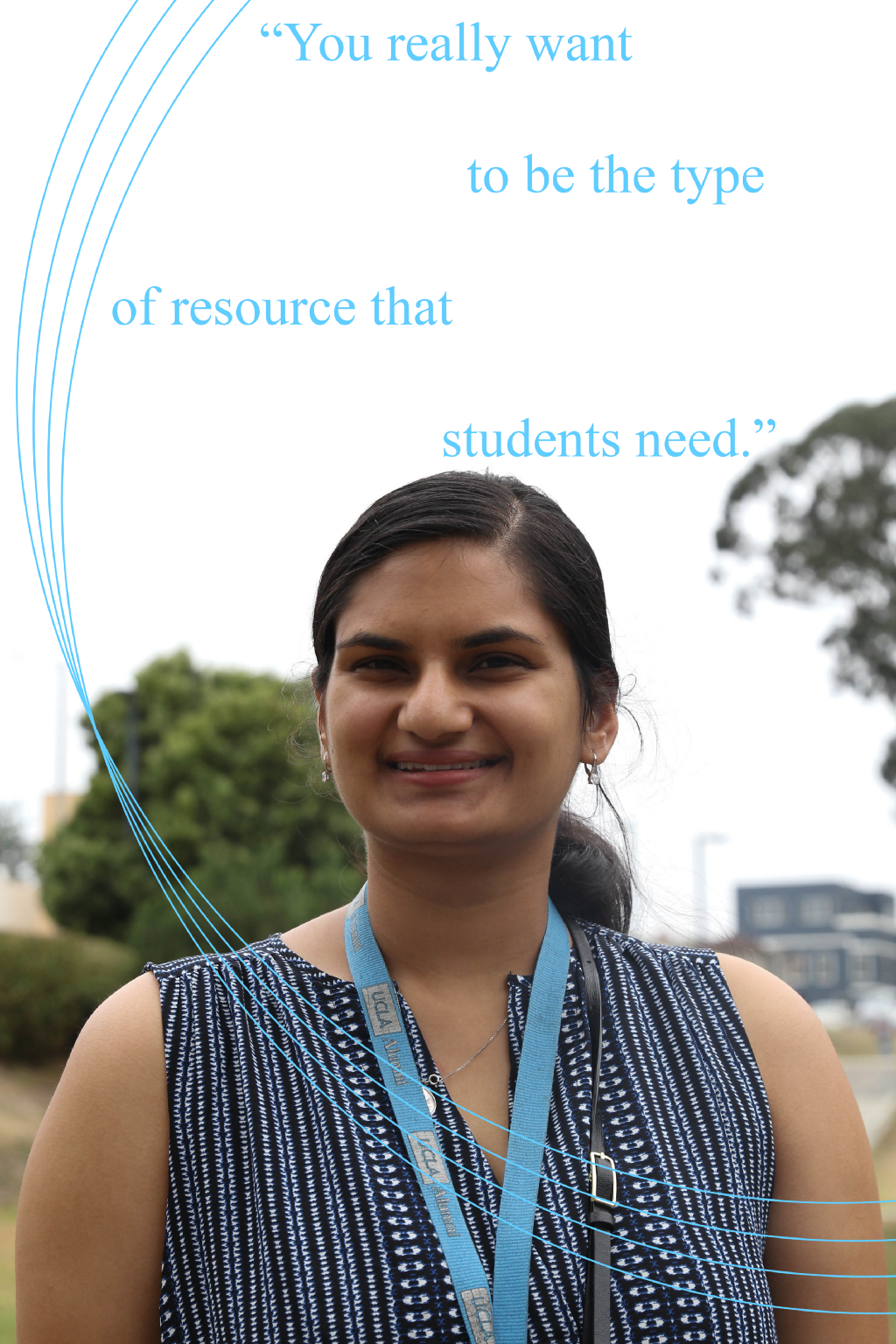
What made you want to become a teacher?
The teachers that I had in high school had a profound impact on me because beyond helping me understand the different disciplines that were there, a couple of English teachers really helped me through difficult times in my life. They were there for me personally and gave me a good model of what an adult could be. That’s the really nice thing about being a high school teacher. Beyond just teaching students about disciplines, you can serve as a model for how they can be as an adult and be that support system if they don’t have one in place. They showed me that when you teach, you don’t just want to be someone who teaches science or English or social science. You really want to be the type of resource that students need.
What were your favorite subjects in school? Did this influence how you chose your profession?
In high school, my favorite subjects were chemistry, English, social science, and biology.
After I studied biology at UCLA, I was a tutor. I worked with students from elementary through middle school, teaching them science and ecology on the side while I was working. I really enjoyed working in a lab and there was also a course where I had the opportunity to be a lab materials preparer. That meant when students were conducting experiments, I was helping them get their materials and helping them conduct their experiment. I really enjoyed that hands-on aspect and being an additional source for students that were at that level.
I wanted to go to medical school when I first got into college, but by the end of college, I really didn’t feel that passionate about it. I felt a lot more passionate about working with people and directly teaching them. I really wanted to teach in high school because I felt like students would benefit from having experience from a person who had been so recently graduated from college. Also, I saw a real need for students to learn basic lab science and conducting experiments because a lot of undergrads, even after four years, didn’t even know basic things like how to scrape plates.
What are some challenges and rewards in your career as a whole?
I think rewards are that you never know what kind of impact you have on students. Even today, students that I was student-teaching with last year at Lowell still remember my name and some might even be thankful for something random that I’ve done that I can’t remember. You never know what impact you have on an individual, and you hope it’s always positive.
I think a lot of the students at Lowell remind me of myself when I was in high school, where you’re very motivated academically, [but sometimes] you need to have some time to develop the other sides of your personality like social skills and a more positive frame of mind. [Students] shouldn’t get too stressed out and worried, [and they should] remember that this is only one part of their life. They’re all highly motivated and intelligent. Those are the characteristics that get them through life more than the actual results.
How did you get involved in writing for UCLA’s student newspaper?
In college, I used to write for the Daily Bruin, which was pretty cool because I got to go to Sacramento and interview the UC regents over there. I won second place for a news series, so I guess you can say that you don’t always have to do whatever your major is.
I always enjoyed English in high school. Once I was in UCLA, I had to take a year of English classes for medical school. I hadn’t done that because by the end of my time there, I didn’t really want to go to medical school so I didn’t do it. It was really hard to find time to take English classes. I heard a lot of positive things about working on the newspaper, so I did it. I did it for about nine months and then it got a little too crazy. I think my classes and enjoying the process of writing during high school made me want to do something like it, and [writing for Daily Bruin] felt very natural. It was really nice to see your name on print and tell people that I am a science major but I do other things, too.
Erin Hanlon, World History and U.S. History teacher
By Hannah Ferguson
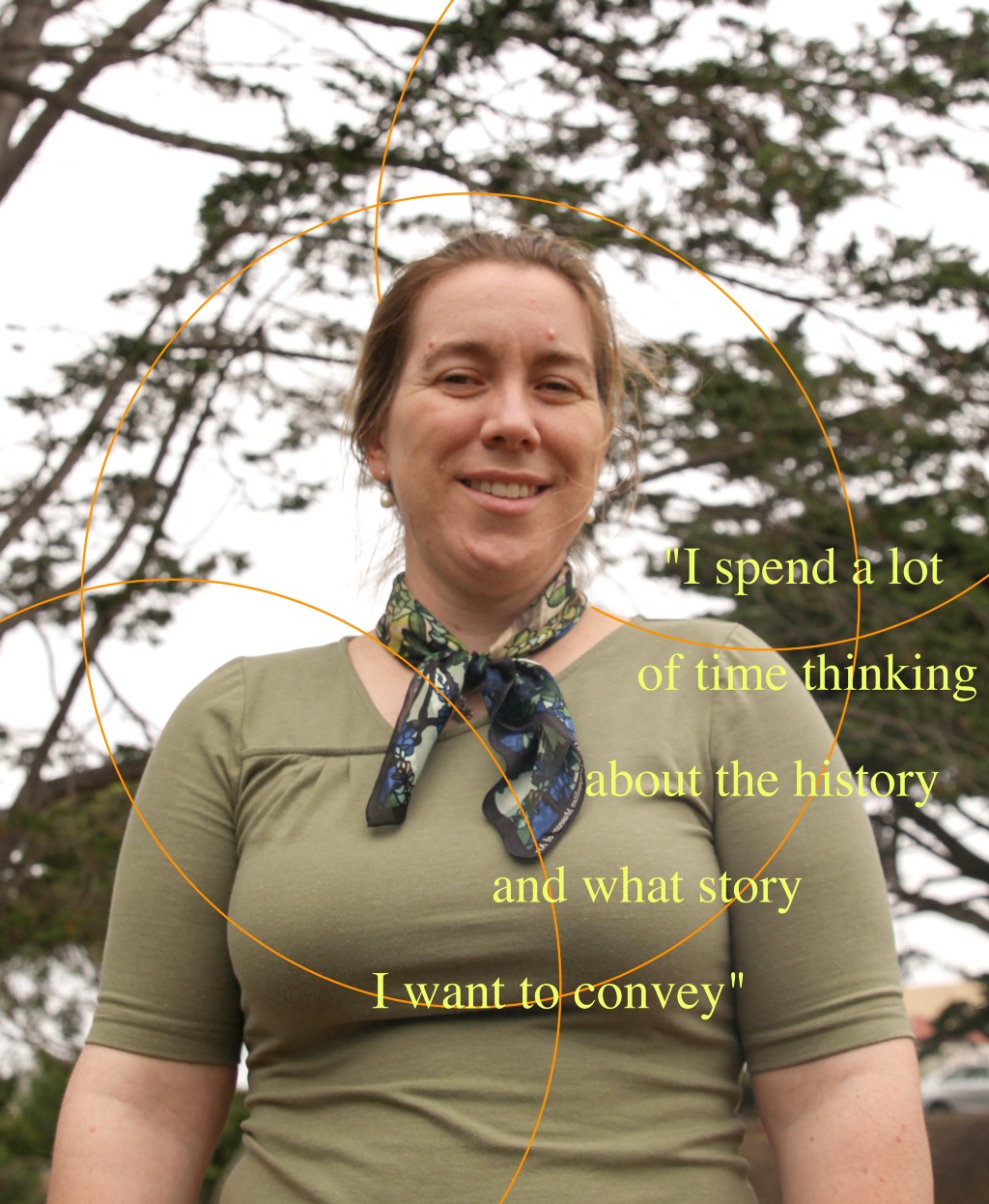
Social studies teacher Erin Hanlon is a new teacher in the social studies department who teaches World History and U.S. History. She has a master’s degree in Biology, which she put to use in her years working for the U.S. Army Corps of Engineers. When she first began teaching, it was not in the United States. A friend recommended that she teach English in Russia. There she found a job at an orphanage, which proved to have a completely different environment than she was accustomed to in the United States. This has influenced her own style of teaching and how she interacts with students. During her free time, Hanlon enjoys reading, photography, knitting, hiking and cooking.
What did you do before becoming a teacher?
I was a civilian employee of a defense department known as the U.S. Army Corps of Engineers, which are famous for maintaining the levees, which is what broke in Katrina. And in my department, in the division I was in, we were also doing the regulating for the Clean Water Act. So do you remember the Standing Rock pipeline protests last fall? The government had permitted a pipeline, that was the kind of work I did. I permitted stuff, pipeline and construction, under the Clean Water Act. So I was not in the Army, nor was I an engineer. I was just a civilian biologist. And I got tired of it, so I decided to have an adventure and teach in Russia. I discovered I loved teaching, so I came back. So it’s a career switch.
Is teaching at Lowell your first full-time position in the United States?
This is my first year being the teacher in charge of a class and getting paid for it, yes. In Russia, I was a person of many hats. I was a substitute teacher at the last minute, I was in the classroom helping kids with pronounciation and with dialogues, and I was also the person who ran the English club where I tried to have a book club with the students. The school where I was at was a parochial school, so it had all grades. They started at age seven and they started learning English in second grade, so that was where I could come in to help teach. The teachers were very strict, so they would literally scream at their students to make them afraid. I didn’t do that, that’s not my way. So I had very noisy, smaller classes. I don’t have that at Lowell.
There are things that are culturally different. You know the various, different methods that teachers use to get their students to be quiet? Like count to ten or clap three times? My students there didn’t understand it. They don’t have those methods of learning. It was different, but I decided that I enjoyed it enough that I wanted to become a teacher.
What are some challenges and rewards that you have in your teaching career as a whole?
Right now, my challenge is that I’m a first-year teacher, and while my colleagues have been extremely generous with sharing their lesson plans and their ideas, I have to figure out what I want to teach, so I spend a lot of time thinking about the history and what story I want to convey and what I want them to be thinking about. I spend a lot of time doing research to put this all together because I don’t have the advantage of a long time here already. And California has certain teaching standards that need to be met, so figuring out how to balance that with everything else.
When you tell people that you lived and worked in Russia, what is the response you get?
I had some much older colleagues who kept telling me that the KGB was going to get me. And it was a joke with my students in Moscow that they thought that I was a spy for the United States government because I was an American and I used to work for the government. And then last year when I was student teaching, they used to joke that I was a spy for the Russian government. But I think that, overall, many people understand or at least try to understand that the people are not the same as the government.
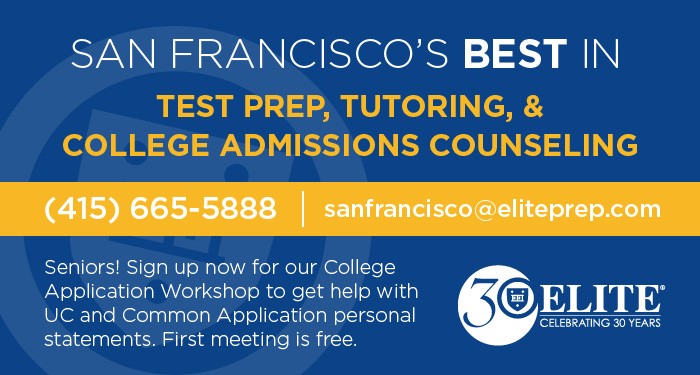
Cheryl Fong, counselor
By Yolanda Feng
Coming back from the beautiful islands of Hawaii, academic counselor Cheryl Fong, a Lowell aluma, returned to Lowell with a desire to create positive experiences and provide support for students. Prior to her current position, Fong was at the University of San Francisco completing her master’s program in counseling, while interning at Westmoor High School in Daly City, working at a summer camp and organizing parties for little kids.
When Fong is not working in the counseling office, she enjoys cooking, playing soccer, swimming in the ocean, spending time with her family, walking her dog, hanging out in the Golden Gate Park and eating Instagram-worthy food. One of her favorite classes in high school was Italian, where she had an opportunity to go on a trip to Italy.
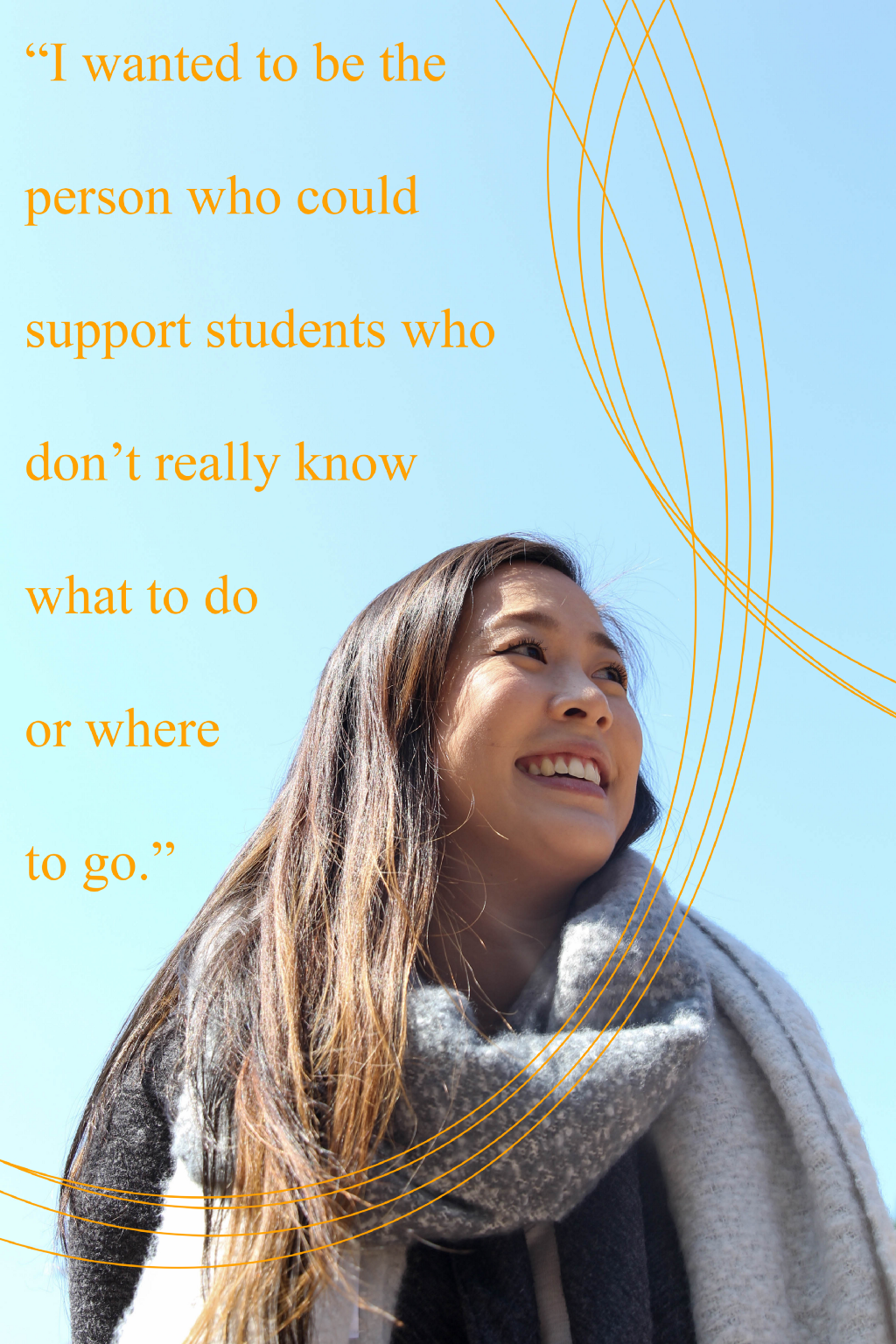
What influenced you to become a counselor?
I struggled with the stress of Lowell. My counselor did the best she could, but I wanted to be the person who could support students who don’t really know what to do or where to go or how to climb out of the hole they dug themselves into. I like the idea of a holistic support system for students. I especially love that Lowell has a strong Wellness Center, counseling department and a college center. I think that all these components really help support and guide students, and I really love being a part of that.
What is your impression of Lowell so far from a counselor’s perspective?
Students have a lot of pressure riding on them. There is a really high expectation level not only from the students, but from their family and from the institution itself. But with that, I also find that a lot of the students here are super driven and way more mature than I would have anticipated high school to be. There’s a wide array of students and maturity levels, but so far it’s been such a pleasure to interact with all the students because everyone here is super great.
What are some of your goals for this school year and beyond?
Mostly just to learn what it is to be a counselor at Lowell. I think that in itself is quite a feat. Being an adult at this school has definitely been a challenge because my memories here are just being a student. Looking like a student is also difficult. One goal is to have enough adults know me where they won’t tell me to go to class, especially during Reg. But an ongoing [goal] is just to make sure I can be a part of this community. I want to be able to contribute to the school and the student body as much as I can and to make sure that people have positive experiences at this school.
How did you choose the colleges you ended up attending?
I actually went to City College before I transferred to the University of Hawaii. I had a big expectation to go to a four-year university — it felt like this school really pushes for that a lot — but I just wasn’t ready. I went to City College for a few years to make sure I knew what I was going to do, and then I chose [to go to] Hawaii on a bit of a whim. [I chose Hawaii because of the] the appeal of going to a different state, experiencing new cultures and new people, and not to mention that it’s Hawaii so it’d be great to go to the beach on the weekends or after school — that one’s definitely a drive for me. It was a good experience to kind of step out of my comfort zone of San Francisco and California.
James Dowd, biology and chemistry teacher
By Allison Dummel
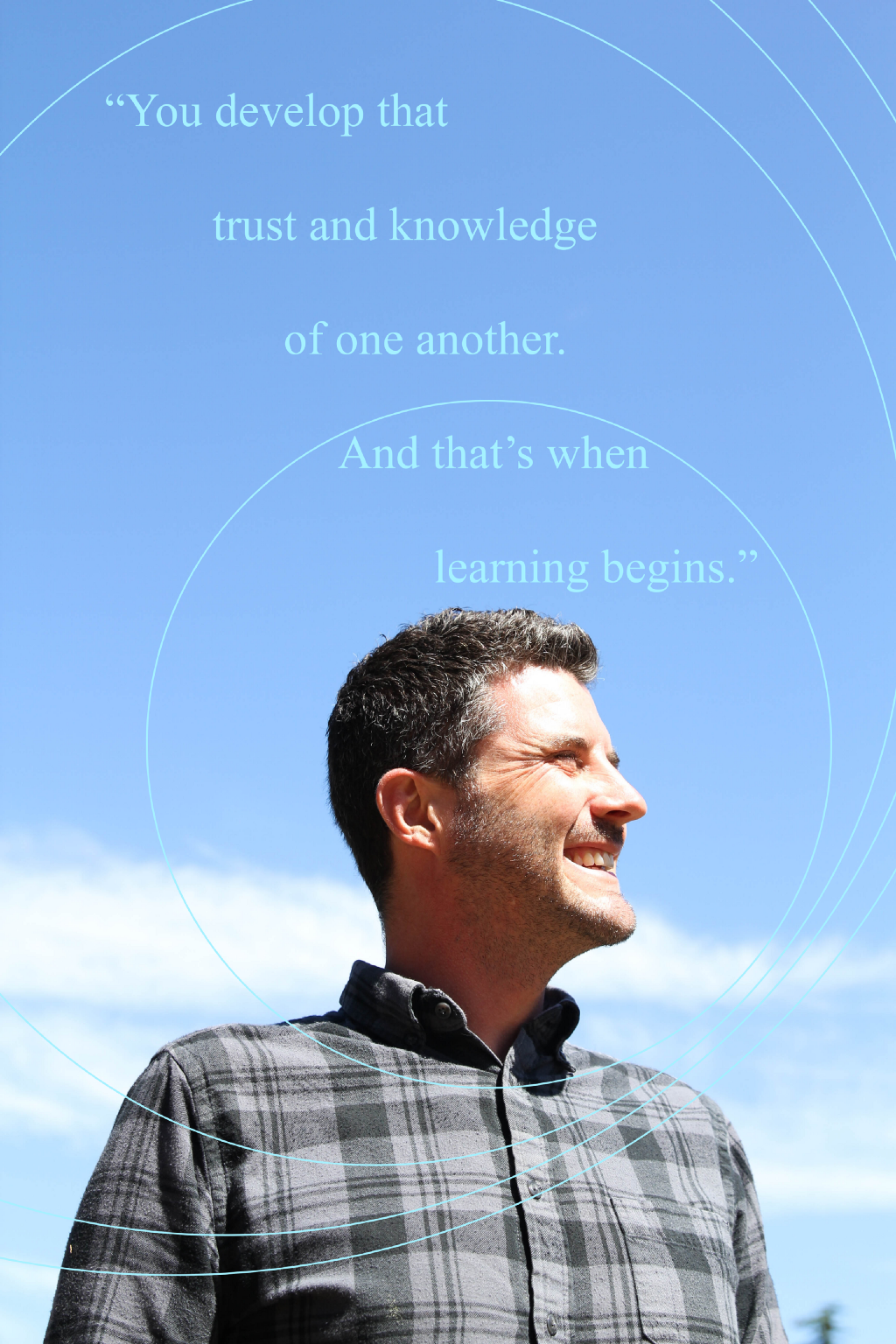
“I realized when I was young that different people have different styles of learning and there were times when I realized that my style of learning wasn’t necessarily met by the teachers I was being educated by,” science teacher James Dowd said. “And I realized that I needed to help discover ways to access making information more accessible to students.” Dowd has always wanted to be a teacher; however, he thought that he should go into a more prestigious position, he said. He worked as a biotech and pharmaceutical scientist and as a business developer for biotech companies but ultimately decided to work as a teacher. He has previously worked at John O’Connell High School and International Studies Academy. As a kid, Dowd loved science and the arts, and one of his biggest hobbies nowadays is cooking.
How do you accommodate students with different learning styles in your classes?
I think when you look at an individual student’s needs, whether they’re a language learner or if they are students that develop a deeper understanding by making things textually relevant. It’s really [about] the student and them as a person, them as a learner, and trying to incorporate each kid’s needs into developing and delivering that curriculum. [For me], rather than immediately on the first day, second day, or first week of school jumping right into the curriculum, I spend time getting to know my kids, trying to make myself as available and as transparent as possible, so they understand who I am and how I operate, how my brain works. [And I let them do the same for me] in return, and I think that organically, through that process, you develop that trust and knowledge of one another. And that’s when learning begins.
What’s your impression of Lowell compared to other schools you’ve taught at?
So far I am blown away. I am super proud to be here; I am really excited to be around the caliber of students I am around daily. And to also be working with such a rich department of science teachers, that’s unique to me.
What have been some challenges and rewards in your career as a whole?
Watching my first class of students, as eighth graders, graduate. That was really powerful and it happened much more quickly than I was anticipating. And [the reward is] just seeing kids grow day over day, year over year, and watching those small successes turn into much larger successes.
I think [when] working in an urban setting, whether it’s a more high-performing school or even a low performing-school, the challenges that are hard for me as a teacher is the fact that I can’t fix all problems, and that I really want to make kids’ lives easier and better, but you can’t change everyone’s path. You can make little blips on the radar. That’s something challenging and humbling at the same time.
How did you get into science?
As a kid, I was always very hands-on, and that was my way of exploring and learning about the world. When I was in school, learning just looked different than it did now and I realized that with science — because I was able to do so much hands-on work with it — that the content started sinking in and absorbing and [I started] developing a passion for it. I had a really really great tenth grade biology teacher, and a ninth grade science teacher, and a really not-so-great-of-a-guy eleventh grade physics and chem teacher, but he was a really great teacher. So I think it was the combination of great people and great pedagogical strategies that really made me believe in myself in science.
How did you get into the arts?
Well, I’m kinda like right brain, left brain, so I really excelled with singing and instruments when I was a kid. That in itself is almost a science: there are patterns, and it’s hands-on. I think that really calmed me, but it stimulated me at the same time so I realized that I had strengths in those areas. So in auditioning for orchestra and for musicals that path just kind of opened up. I even wrote a musical with my best friend in San Diego about ten years ago. It was an awesome success. So music has always been a really big part of my life.
These interviews have been edited and condensed by Tammie Tam.



